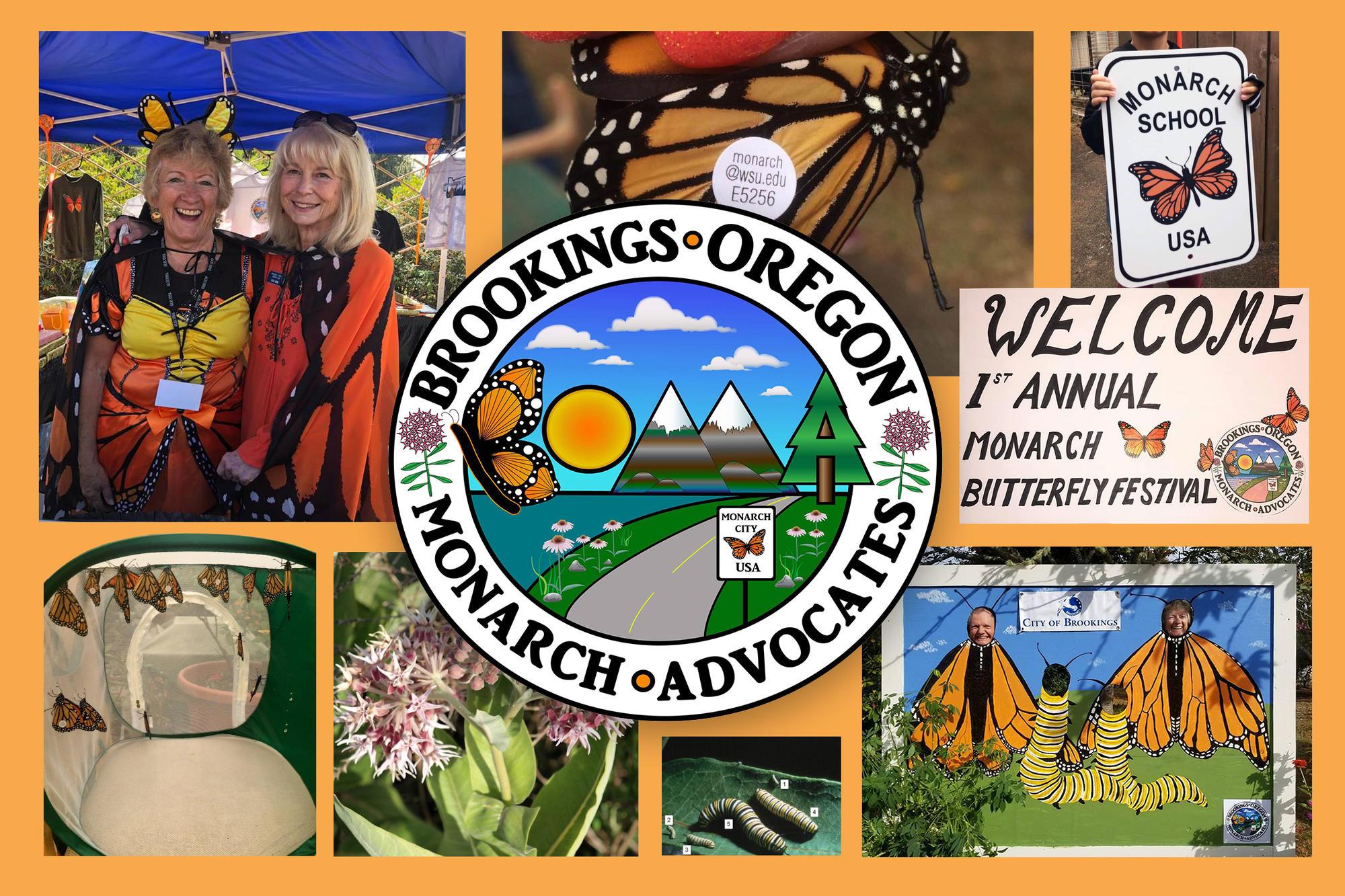Brookings Oregon Monarch Advocates
The Monarch Butterfly Project in Brookings Oregon
As Master Gardener™ volunteers in Curry County we can help to promote the work of Brookings Oregon Monarch Advocates. In May 2017, Brookings became recognized as the first Monarch City USA in the state of Oregon.
Community education and involvement is critical for the conservation of monarch butterflies and other pollinators which have seen precipitous declines in populations. Doing our part to educate the public to protect all pollinators is critical to our own survival. Bees, butterflies, birds, beetles, bats, wasps and even flies are important in the pollination process.
It is estimated that more than 1,300 types of plants are grown around the world for food, beverages, medicines, condiments, spices and even fabric. Of these, about 75% are pollinated by animals. Pollinators are responsible for the reproduction of 90% of the world’s flowering plants.
The volunteers of the Brookings Oregon Monarch Advocates (BOMA, for short) have been actively involved in promoting monarch butterfly conservation and rearing adult butterflies from eggs indoors where they are protected from predators, pesticides and parasites. BOMA gives seminars to the public, works with teachers and students at Kalmiopsis Elementary School teaching the children about the life cycle of the monarch butterfly (designated a Monarch School USA in 2018), and host an annual Monarch Festival.
Curry County Master Gardener volunteers were invited to set up a booth to answer plant questions from the general public and to give input on making our gardens more pollinator-friendly.
To help BOMA’s monarch butterfly conservation efforts, volunteers can:
- Grow from seed two native species of milkweed (Asclepias speciosa and Asclepias fascicularis, or showy and narrowleaf milkweed.
- Distribute literature at mobile plant clinics which promotes planting milkweed in our gardens for the monarch caterpillars and other pollinator-friendly plants for adults and other pollinators.
- Establish Monarch Waystations at private residences or public land (with appropriate permissions). Monarch Waystations are critical to the survival of monarchs because they provide pesticide-free nourishment and shelter to the monarchs in every stage of their life cycle: egg, caterpillar, chrysalis and adult. Certified Monarch Waystations must have at least 10 milkweed plants from at least 2 different native species and nectar plants, preferentially native to the area.
- Learn about Integrated Pest Management strategy in the garden. Use no pesticides on milkweed whether it be in the garden or on the roadside.
We can make a positive difference in our home environments by providing a diverse assortment of flowering plants and encouraging native species in the landscape. Use pesticides only when necessary and then only late in the day or evening. Look for alternative ways to deal with pest and disease issues before reaching for a quick fix.
Please feel free to contact Dennis Triglia at [email protected] if you would like to learn more about monarch butterfly conservation and/or the Brookings Oregon Monarch Advocates.
